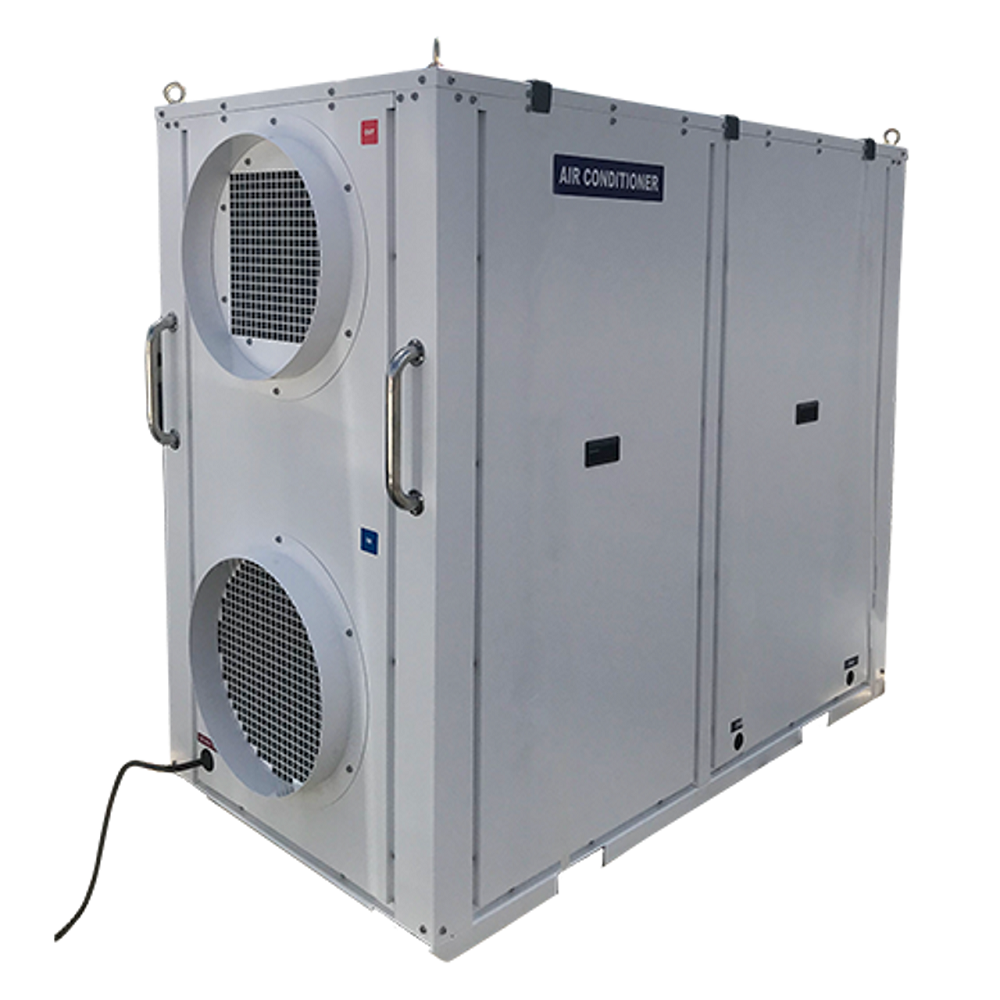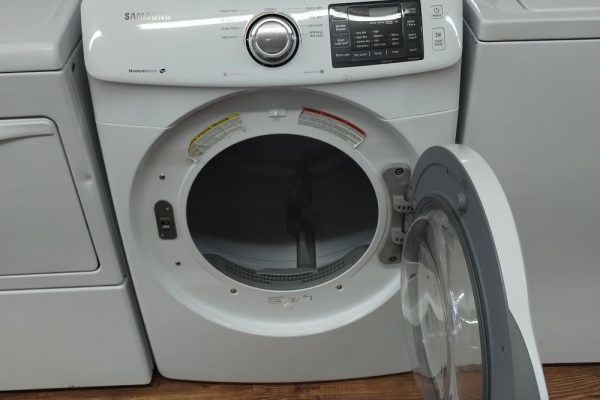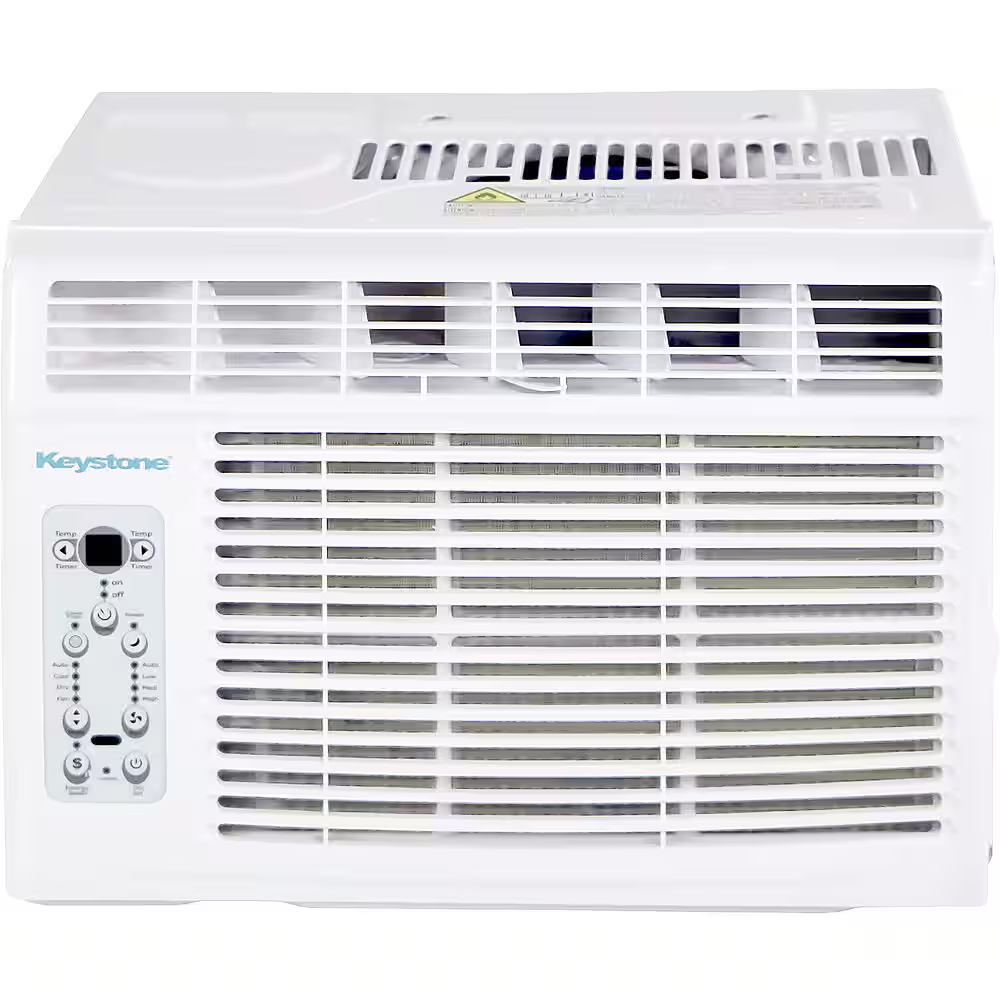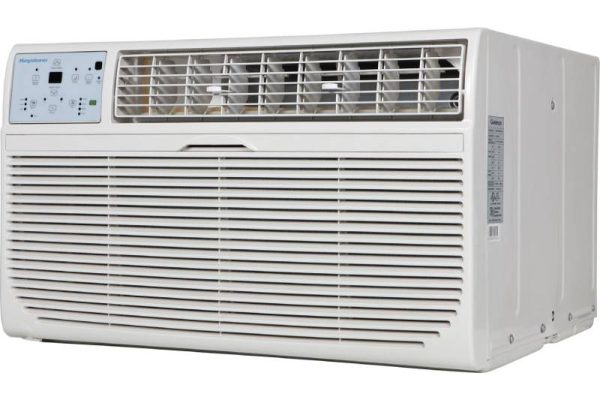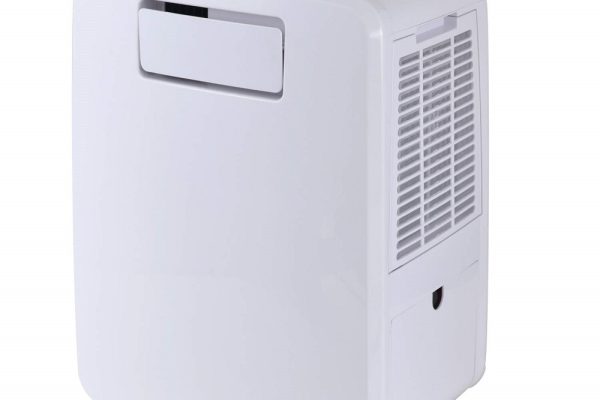Overview of Industrial Air Conditioners
Industrial air conditioners are designed for large-scale cooling needs. They cater to facilities like factories, warehouses, and data centers. These systems handle high cooling demands efficiently. Unlike residential units, they are built for heavy-duty operation.
Industrial air conditioners regulate temperature and ensure a stable indoor environment. They are crucial for maintaining equipment performance and worker comfort. These systems are engineered to handle extreme conditions, including high heat or large spaces.
Their advanced features include energy-efficient technology and precise climate control. Many industrial air conditioners integrate modern automation and monitoring systems. This ensures consistent cooling and reduces downtime in critical operations.
In summary, industrial air conditioners are robust systems for maintaining climate control in industrial settings. They ensure continuous operations, protect equipment, and create a better working environment.
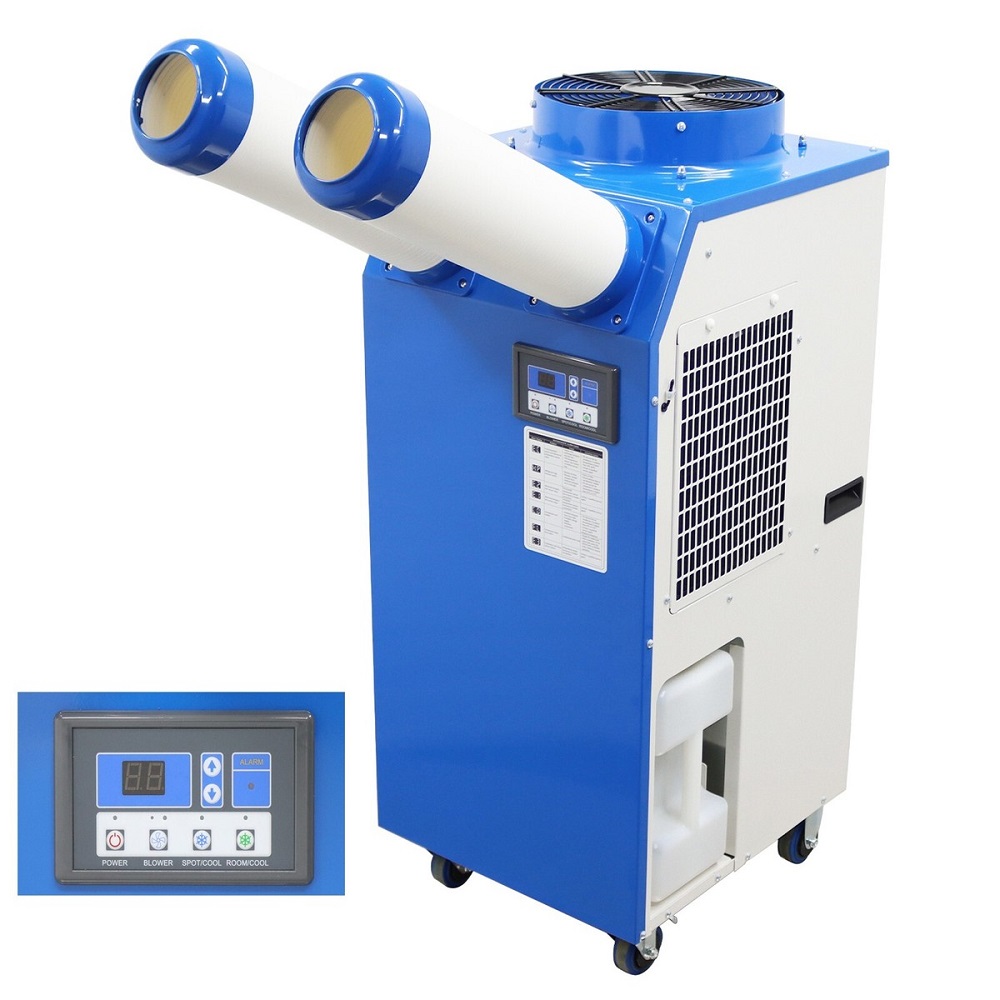
How Industrial Air Conditioners Work
Industrial air conditioners operate using complex systems to cool large spaces. They are designed to handle heavy-duty tasks efficiently.
Key Components
- Compressor: Compresses refrigerant to start the cooling process.
- Condenser Coils: Expels absorbed heat from the refrigerant to the outside environment.
- Evaporator Coils: Absorb heat from indoor air to cool it.
- Blowers and Fans: Circulate cooled air throughout the facility.
- Refrigerant: Transfers heat from the indoor environment to the outside.
Cooling Process
- The system pulls in warm indoor air through evaporator coils.
- The refrigerant absorbs this heat and turns into a gas.
- The compressor compresses the refrigerant gas, increasing its temperature and pressure.
- The hot gas moves to the condenser, where it releases heat to the external air.
- The refrigerant returns to a liquid state, repeating the cycle.
Advanced Control Systems
Modern industrial air conditioners often include automated controls. These systems ensure consistent temperatures and monitor performance. Some units integrate sensors to detect and adjust for temperature changes in real-time.
Understanding these processes helps industries better manage their cooling needs and optimize performance.
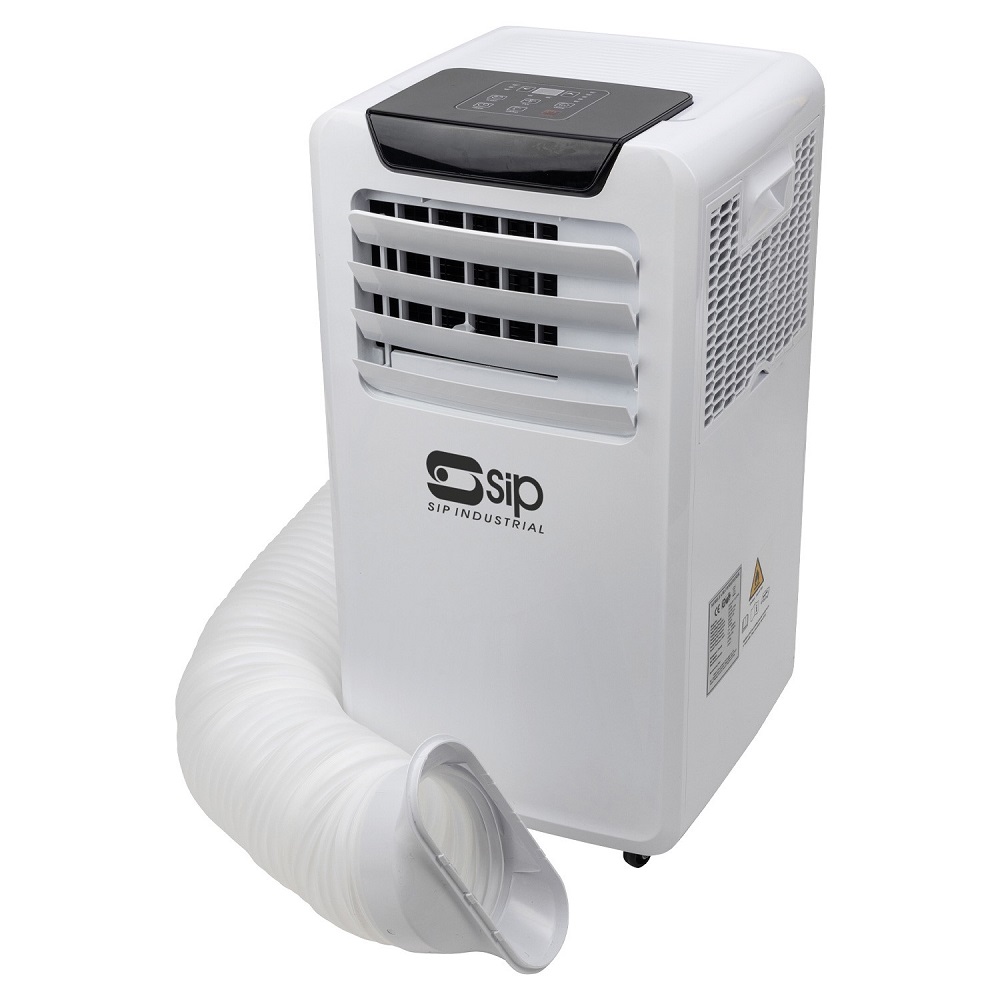
Key Features of Industrial Air Conditioner
Industrial air conditioners offer advanced features tailored to meet large-scale cooling demands. These features ensure they operate efficiently in demanding industrial environments.
Energy Efficiency
Modern industrial air conditioners are designed to consume less energy while delivering high performance. Many models include energy-saving components such as variable-speed compressors and smart systems. These features help reduce electricity bills and environmental impact.
Precise Climate Control
Industrial air conditioners provide accurate temperature and humidity control. Advanced thermostats and sensors allow for real-time adjustments. They maintain stable conditions in spaces where temperature consistency is critical.
Durability and Heavy-Duty Design
These systems are built to handle extreme conditions and work continuously without frequent breakdowns. Heavy-duty construction materials and designs ensure longer operational life.
Advanced Monitoring Systems
Many industrial air conditioners integrate smart controls and automated monitoring. These systems track performance and alert users about potential issues. Automation reduces downtime and optimizes operations.
Noise Control Features
Some systems include noise-reducing technology to minimize disruption in the workplace. This feature is crucial in settings where quiet environments are needed.
Customizable Solutions
Industrial air conditioners can be tailored to specific industry needs, such as capacity and functionality adjustments. Customization allows businesses to optimize cooling systems for their operations.
Eco-Friendly Operations
Many units use refrigerants that are safer for the environment. Additionally, high efficiency reduces the carbon footprint of industrial operations.
These features make industrial air conditioners a reliable choice for maintaining optimal industrial conditions.
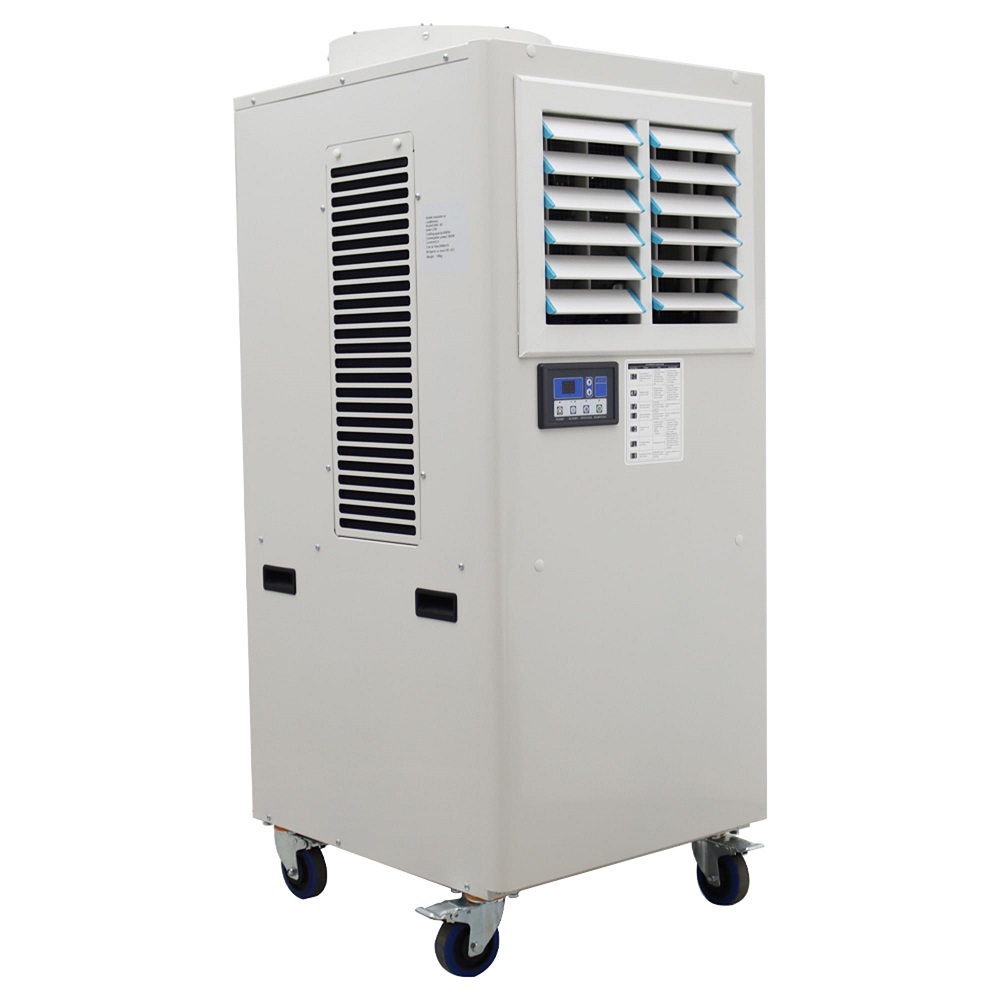
Benefits of Using Industrial Air Conditioner
Industrial air conditioners offer numerous benefits, making them essential for large facilities. They ensure efficient operations, workplace comfort, and optimized performance. Here are the key advantages of using these systems.
Improved Air Quality
Industrial air conditioners enhance indoor air quality significantly. They remove dust, pollen, and other particles with efficient filtration systems. This creates a healthier and more comfortable environment for workers. Additionally, humidity control prevents mold and mildew growth, which protects both workers and equipment. High air quality also reduces risks of allergies and respiratory issues, boosting employee productivity.
Enhanced Equipment Performance
Many industries rely on machinery that heats up during operation. Industrial air conditioners regulate indoor temperatures, preventing equipment from overheating. Stable cooling conditions improve the lifespan and reliability of machines. This reduces repair costs and downtime, allowing uninterrupted operations. Proper temperature control ensures sensitive equipment performs at optimal levels.
Energy Efficiency
Modern industrial air conditioners are designed with energy-saving technologies. Variable-speed compressors and smart controls help reduce electricity consumption. These features lower energy costs while maintaining effective cooling. Energy-efficient systems also reduce environmental impact by cutting carbon emissions. This balance of performance and sustainability makes them a cost-effective choice for industries.
Using industrial air conditioners provides a healthier, safer, and more efficient workspace. These systems enhance equipment performance, while optimizing energy use, ensuring long-term savings for businesses.
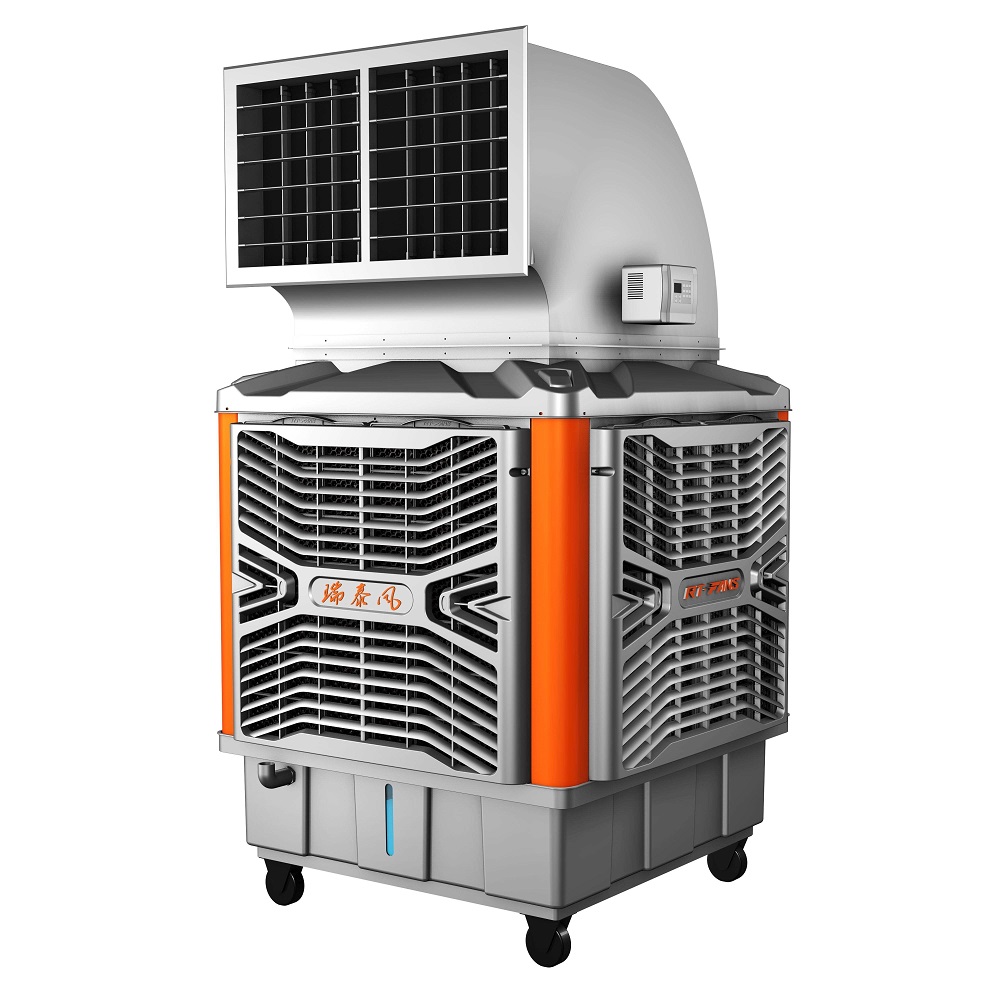
Different Types of Industrial Air Conditioner
Industrial air conditioners come in various types to meet diverse cooling needs. Each type has unique features suited for specific applications. Selecting the right system depends on the facility size, cooling requirements, and operational demands.
Centralized Systems
Centralized systems are ideal for large-scale facilities with high cooling requirements. These systems use a central unit to cool air, which is distributed through ducts.
- Advantages: They ensure uniform cooling across large spaces. They are efficient for long-term use in big facilities.
- Applications: Commonly used in manufacturing plants, warehouses, and office buildings.
- Features: Central systems often include advanced controls for precise temperature management.
Portable Industrial Air Conditioner
Portable air conditioners are mobile units designed for temporary or localized cooling. They are easy to install and move.
- Advantages: Flexible and quick to set up. They are perfect for spot cooling and short-term needs.
- Applications: Frequently used in construction sites, small workshops, or events.
- Features: They are compact, energy-efficient, and easy to maintain.
Rooftop Units
Rooftop units are compact cooling systems installed on building roofs. They save interior space while offering powerful cooling.
- Advantages: They are space-saving and keep noise away from working areas. They are efficient for cooling large areas.
- Applications: Used in malls, factories, and large office buildings.
- Features: Built with durable materials to withstand outdoor weather conditions.
Understanding these types helps businesses make informed decisions. The right system enhances cooling efficiency and caters to specific operational demands.
Applications of Industrial Air Conditioner in Various Industries
Industrial air conditioners play a crucial role in maintaining optimal conditions for various industries. They ensure a stable environment that improves efficiency and protects equipment.
Manufacturing and Warehousing
Manufacturing plants and warehouses require effective cooling for smooth operations. High temperatures can affect production processes and worker productivity. Industrial air conditioners help regulate temperature and humidity in these large spaces. They prevent equipment overheating and create a comfortable work atmosphere. Moreover, improved air circulation reduces dust and particles, enhancing overall air quality in production areas.
Data Centers and IT Facilities
Data centers house sensitive electronic equipment that generates significant heat. Industrial air conditioners provide precise cooling to prevent overheating and equipment failure. Controlled temperatures ensure consistent performance and reduce the risk of downtime. Advanced systems also manage humidity levels to avoid damage to servers and networking equipment. Reliable cooling is essential to maintaining uninterrupted IT operations.
Food Processing and Cold Storage
Food processing facilities and cold storage units rely on industrial air conditioners for temperature control. Proper cooling preserves food quality and prevents spoilage. These systems maintain consistent temperatures required for perishable goods. Industrial air conditioners also ensure optimal humidity, reducing the risk of mold and bacteria growth. They are critical in meeting health and safety standards for food products.
Industrial air conditioners play a vital role across industries. They enhance operational efficiency, protect equipment, and ensure safety in specialized environments.
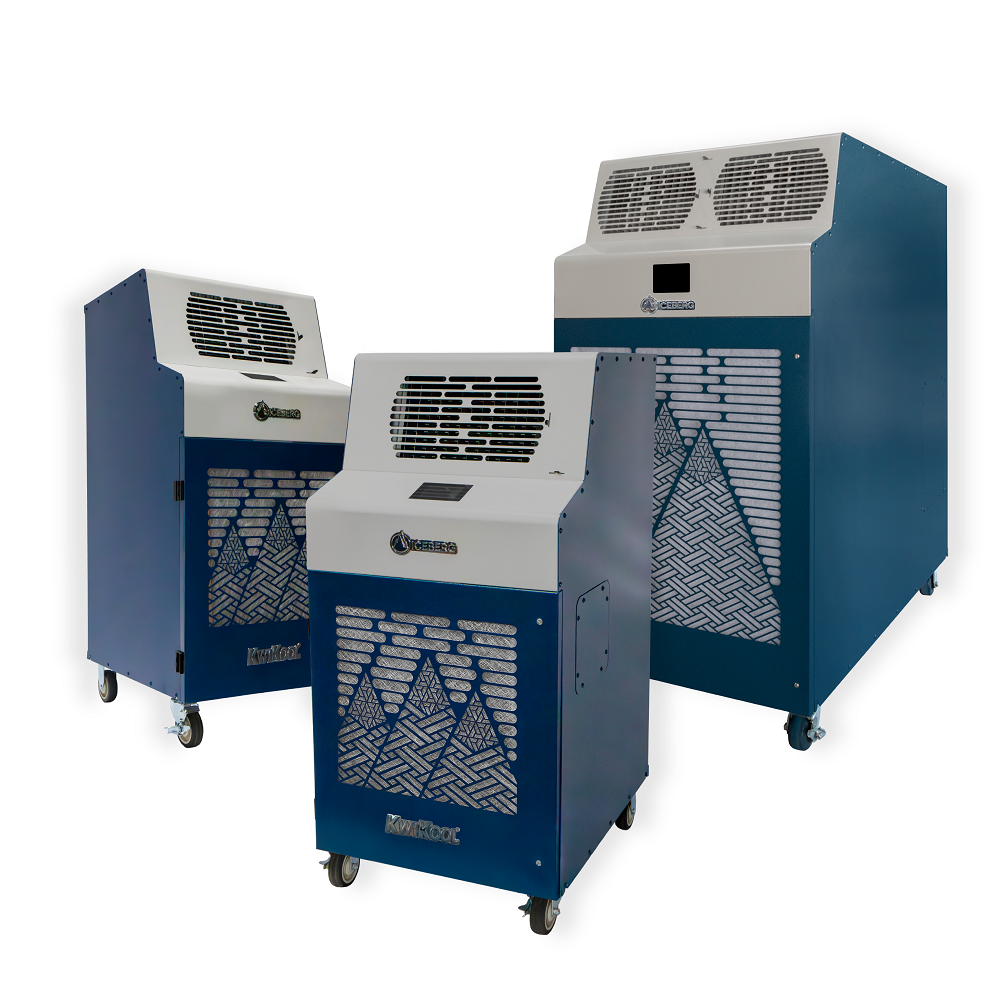
Factors to Consider When Choosing an Industrial Air Conditioner
Selecting the right industrial air conditioner is crucial for efficient operations. It ensures optimal cooling and cost-effectiveness. Various factors come into play when making the decision.
Cooling Capacity
Cooling capacity is the most important consideration. It determines how much space the unit can cool. Calculate the size of your facility to assess needs accurately. Match the air conditioner’s capacity with your operational demands. Underpowered units can overwork and fail. Overpowered systems waste energy and increase costs. Manufacturers provide cooling capacity data in BTUs (British Thermal Units). Use this information to choose the right unit.
Energy Consumption
Energy consumption affects both operational costs and sustainability. Look for energy-efficient units with smart controls. Choose systems with advanced features like variable-speed compressors and automation. These features optimize cooling and reduce electricity use. Energy-efficient units help lower the overall carbon footprint of your business. Check for certifications such as ENERGY STAR ratings for high efficiency.
Installation and Maintenance Costs
Consider both initial and long-term expenses. Evaluate installation costs based on the complexity of the system. Centralized systems may require more installation effort compared to portable units. Maintenance costs also vary depending on the system type. Some units need frequent servicing or special components. Choose a model with durable parts to minimize lifecycle expenses. Reliable suppliers often provide warranties and maintenance plans for cost savings.
By focusing on these factors, you can select an industrial air conditioner that meets your needs. Proper selection ensures efficient cooling and long-term benefits.
Tips for Maintaining Industrial Air Conditioner
Proper maintenance is vital for the efficient operation of industrial air conditioners. Regular upkeep ensures long-term performance, reduces energy costs, and minimizes unexpected breakdowns. Here are essential tips for maintaining these systems effectively:
Schedule Regular Inspections
- Inspect the air conditioner periodically to detect potential issues early.
- Check for unusual noises, vibrations, or water leaks during inspections.
- Monitor refrigerant levels to ensure optimal cooling performance.
Clean or Replace Filters
- Dirty filters can block airflow and reduce cooling efficiency.
- Clean filters frequently or replace them as recommended by the manufacturer.
- Use high-quality filters to improve air quality and system longevity.
Keep Coils Clean
- Clean evaporator and condenser coils to avoid dust buildup.
- Dirty coils force the system to work harder, consuming more energy.
- Schedule coil cleaning at least twice a year to maintain efficiency.
Check and Tighten Electrical Connections
- Loose electrical connections can cause system failures or inefficient operation.
- Inspect wiring and connections regularly to ensure safety and reliability.
- Engage a professional technician for detailed electrical inspections.
Test Thermostats and Sensors
- Ensure thermostats and sensors work accurately for precise climate control.
- Calibrate thermostats as needed to maintain the desired temperature.
- Replace malfunctioning sensors promptly to avoid uneven cooling.
Maintain Proper Refrigerant Levels
- Insufficient refrigerant levels reduce cooling efficiency and may damage the compressor.
- Test for refrigerant leaks and address them promptly.
- Refill refrigerant levels according to system specifications.
Inspect Blowers and Fans
- Ensure blowers and fans are free from dust and debris.
- Lubricate motors and bearings to reduce wear and tear.
- Check for imbalanced or damaged fans to prevent airflow issues.
Monitor Drainage Systems
- Clear clogs in the drainage system to prevent water buildup.
- Check drain pans and lines for leaks during maintenance.
- Ensure proper drainage to avoid mold and humidity issues.
Conduct Seasonal Maintenance
- Prepare the system for high-demand seasons like summer.
- Shut down and clean the unit during periods of inactivity.
- Perform comprehensive inspections during seasonal transitions.
Hire Professional Service
- Schedule annual maintenance from certified technicians for thorough checks.
- Professionals can identify complex issues and provide expert solutions.
- Invest in maintenance contracts for regular and reliable service.
By following these maintenance tips, businesses can ensure consistent performance from their industrial air conditioners. Regular care not only extends system life but also improves energy efficiency and reduces operational costs.
Frequently Asked Questions About Industrial Air Conditioning Systems
What are industrial air conditioning systems designed for?
Industrial air conditioners are built for large spaces like factories, warehouses, and data centers. They ensure efficient cooling, maintain worker comfort, and protect equipment from heat damage.
How do industrial air conditioner differ from residential units?
Industrial systems handle higher cooling demands. They are more durable and suited for heavy-duty operations. Unlike residential units, they include features like precise climate control and advanced monitoring.
Are industrial air conditioners energy-efficient?
Yes, modern industrial air conditioners focus on energy efficiency. Features like variable-speed compressors and smart controls help save power.
How often should industrial air conditioner be maintained?
Regular maintenance is crucial. Inspect filters, coils, and connections every three months. Schedule professional servicing at least once a year.
Can industrial air conditioner improve air quality?
Yes, these systems use advanced filtration to remove dust, pollen, and other particles. They also maintain humidity levels, preventing mold and mildew.
Are there different types of industrial air conditioning systems?
Yes, popular types include centralized systems, portable units, and rooftop air conditioners. Each type serves different needs.
What factors should I consider when choosing an industrial air conditioner?
Consider cooling capacity, energy consumption, and installation costs. Match the system to your facility’s needs for optimal results.
How long do industrial air conditioner last?
With proper maintenance, they typically last 10 to 15 years. Routine care extends their lifespan and efficiency.
Do industrial air conditioners work in extreme temperatures?
Yes, they are designed to function in high and low temperatures. Heavy-duty components ensure reliable performance.
Are industrial air conditioners environmentally friendly?
Many modern units use eco-friendly refrigerants. Energy-efficient designs also reduce carbon emissions, making them sustainable choices.
